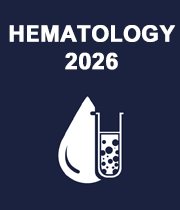Studies in Model Organisms
Model organisms are essential tools for researchers all around the world. A model organism is a species that has been extensively researched, usually because it is simple to keep and breed in a laboratory setting and provides unique experimental benefits. They're usually creatures that are simple to keep alive and breed in a lab. A model organism is a non-human animal that is studied to better understand biological processes in the hopes of learning more about the workings of other organisms through the findings made in the model organism. They may also hold a critical place in the evolutionary tree, providing scientists with information on evolutionary development. Model organisms become crucial tools in basic biological and clinical research, allowing scientists to accumulate vast amounts of data.



Title : Acute intermittent porphyria: A neurological dilemma obscured by ubiquitous fgastrointestinal presentation
Mayank Anand Singh, Mimer Medical College, India
Title : Comprehensive symptom management and supportive nursing care in a preterm toddler undergoing HSCT for pyruvate kinase deficiency
Tran Thi Dung, Vinmec International Hospital, Vietnam